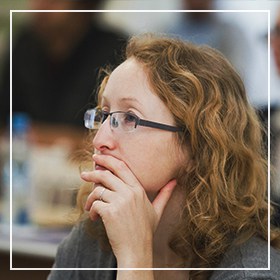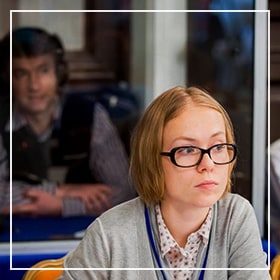At the beginning of 2017 many Russians living with HIV/AIDS were told by their doctors that there were no antiretroviral drugs for them. They would have to change their therapy regimen or even stop treatment completely for the time being. Doctors would say, ‘we just don’t have anything left for you; stocks are depleting and what is left needs to be reserved for pregnant women to prevent prenatal transmission of infection and for really urgent cases’.

The reason for this medical disaster was a rapid change of drug procurement procedures by the Ministry of Health. Regional departments of health didn’t cope with the new tendering requirements – installed for a very good reason, to prevent corruption – and many regions failed to make contracts with drug producers on time. It was not until summer 2017 that officials stopped denying a possibility of shortage, dismissing statements of patients who spoke up and concerns made by some physicians.
This story so far resembles familiar accounts of how non-democratic governance processes occur, specifically those in post-Soviet settings. There is unpredictable, hastened, and non-transparent regulatory change, not attuned to the realities on the ground or needs of those affected by it. Citizens appear as helpless victims (and here ‘helpless citizens’ category would also include medical professionals and scientists along with the lay persons and patients) with their lives being mounded by political power.
However true this picture may be, it overlooks an important nuance: there are avenues for citizen participation in science, technology, and politics in non-democratic spaces.
Yet conceptions of participation as deliberative (or ‘talk-based’), formally designated, and situated in institutionally sanctioned spaces that have come to dominate academic imagination, preclude recognition of and engagement with such avenues.
Indeed, look at what has been happening in parallel to the situation described above. Income of an average Russian citizen is not nearly enough to allow purchasing antiretovirals regularly. Add to this the heavy stigmatisation of HIV-positive people due to suffering as a result of their immoral behaviour (often referred to is drug addiction – for a long time HIV epidemic in Russia has been fuelled by intravenous drug use) and being highly contagious. Those, whose health state became known, tell stories about being fired from their jobs and denied access to, for example, dental services. So what were these people left to do in a situation of drug shortages, being able to neither afford them nor mobilise larger society for support?

What occurred next was the organisation of an additional layer to the drug distribution system. Soon in all major cities leftovers and stocks of unused medicines kept by those who changed treatment regimen and from those few who could pay were pulled together in ‘medicinal boxes’. Out of these ‘medicinal boxes’ help was distributed for free to those whose therapy was changed or stopped by the state health care. Surely, the functioning of this system was still dependent on inputs of antiretrovirals previously supplied by the healthcare organisations. Yet, concerned with medically unjustified changes in treatment or its interruption and the effects it would have on their health and long-term prospects, people living with HIV/AIDS managed to take action to avoid triage and meet health needs for at least some in their community, filling the few gaps formal healthcare system couldn’t fill.
One can interpret these actions through ‘weapons of the weak’. However, a recent theme in social science – public participation in science, technology and politics – can offer a productive angle to interpret these actions as well. Practices of HIV/AIDS community can be read as an innovation in participation that allowed patients to reshape and contribute to the functioning of the state healthcare system. Importantly, they did it through materiality of drugs and their flow as well as using informal ways, but those looking for a public debate and participation in institutionally sanctioned spaces continued to look in vain.
It is, then, crucially important that we widen our conceptions of and approaches to study participation, to include hidden, informal ways in which citizens engage with science, technology, and politics, especially where they are persistently discouraged from doing so.
Is it possible to rethink the strands of, primarily, Science and Technology Studies (STS) scholarship dealing with public engagement and participation as a kind of area studies? Can it be that the STS models and concepts make less sense outside the settings where they were developed, namely in mature democracies of the ‘west’? As Manuel Tirony argued recently with regards to the issue at hand, “universal claims and generalized hypotheses have to be carefully calibrated and agnostically revised”. This is not to undermine the importance and numerous achievements of the field, but to point out that sometimes modes of reasoning and trajectories of scholarly inquiry are so entrenched in such past achievements that they obscure rather than illuminate important dynamics and practises. For example, our recent research on science, technology and politics in post-Soviet settings (see, specifically chapters by Ekaterina Borozdina and Tetiana Stepurko & Paolo Carlo Belli in the book “Health, Technologies, and Politics in Post-Soviet Settings. Navigating Uncertainties”) has indicated a variety of ways, most of which are hidden and informal, in which citizens take part in shaping health technologies and care. These ways are yet to be noticed and recognised as modes of participation.

However, it would be unproductive to think about public participation as being open and formal in democratic settings, while being hidden and informal in non-democratic ones. Or to draw any strict dichotomies of this kind, including democracy versus non-democracy itself. Our point is rather different: there is a rich repertoire of practises and avenues creatively developed by citizens to influence sociotechnical change and its various smaller streams. Some of these appear to be more relied upon in situations where the public is excluded from taking part in technologies and politics. But each setting is characterised by a complex mix of formal and informal as well as open and hidden participation practices, forming a larger ecology of interconnected publics, artefacts, and infrastructures. Russian HIV/AIDS patients, who started off by acting in isolation from any formal processes, collected a large compilation of statements and evidence of shortages from those affected who turned to the ‘medical boxes’ for help.
That is, through hidden and informal actions artefacts were collected for engaging into a different kind of action that ended up breaking the denial of decision-makers (not resulting in a public debate, mind you, but still engaging gears of the inert healthcare system to move towards correcting itself).
It is this kind of work of recalibrating and revising claims and hypotheses, to paraphrase Tironi, in science, technology, and medicine, in light of global diversity of societies and political cultures that we attempt to inspire with the series of the ‘Social sciences & health innovations’ conferences. The latest conference took place on May 22-24, 2017, and had a focus on ‘Making health public’. Apart from connecting social and biomedical scientists, public health professionals, and policy makers, this series was meant to serve as a platform to facilitate dialogue between academics working globally and in post-Soviet regions. It is about time that social studies of participation and STS more generally stop being ‘area studies’ and begin seriously engaging with locations outside the geographies of their birth.
Featured image by Damian Gadal (flickr, CC BY 2.0).






